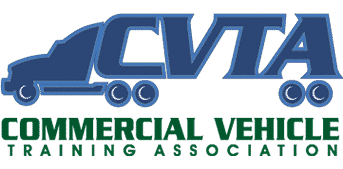The Federal Motor Carrier Safety Administration (FMCSA) updated its entry-level driver training (ELDT) requirements as of February 7, 2022. These apply to drivers who are earning their Class A commercial driver’s license (CDL) for the first time, as well as those who are upgrading from a Class B to a Class A or who are earning certain endorsements.
In order to earn your CDL and become a trucker, you will need to do so in compliance with these regulations. At Phoenix Truck Driving School, our programs meet the new ELDT requirements and we can help you get on the road and earning in as little as four weeks.
How Have the ELDT Requirements Changed?
Understanding how the recent changes to the ELDT requirements are different from the previous regulations is helpful for getting an idea of how these changes affect CDL instruction.
Here are some of the differences:
- Under the new requirements, only institutions on the FMCSA’s Training Provider Registry (TPR) can provide entry-level CDL training. Before the updated regulations, institutions only had to meet state-level training requirements.
- The topics students need to learn in order to earn their CDL are now standardized.
- As of February 7, 2022, schools must administer the CDL written test and report students’ scores to the FMCSA. Previously, this was the responsibility of each state’s Department of Motor Vehicles (DMV).
CDL Theory Instruction Requirements
CDL instructors must cover a list of specific topics under the new ELDT requirements. In order to determine proficiency, instructors must use assessments and students need to earn an 80% or higher on these assessments. There are no minimum hours for theory instruction as long as students can demonstrate proficiency.
There are five categories for theory instruction and each one includes various sub-topics.
The theory instruction categories are:
-
- Basic Operation: This topic includes subtopics such as pre-trip and post-trip inspections, coupling and uncoupling (for Class A CDLs only), and basic vehicle control.
- Safe Operating Procedures: To earn a CDL, students will need to understand topics including nighttime driving, handling extreme conditions, and the dangers of distracted driving.
- Advanced Operating Practices: CDL students must understand hazard perception, railroad-highway grade crossings, and skid control/recovery.
- Vehicle Systems and Reporting Malfunctions: Entry-level training must cover topics related to vehicle systems and malfunctions, including how to handle roadside inspections.
- Non-Driving Activities: Truck driver training must cover a variety of sub-topics related to non-driving activities, including post-crash procedures, trip planning, and environmental compliance issues.
Behind-the-Wheel Driving Requirements
CDL programs must also include behind-the-wheel training. There isn’t a minimum number of hours for this training, but instructors do need to document the total clock hours and ensure they cover all required topics.
The ELDT regulations require programs to cover the following skills in a range setting:
- Coupling and uncoupling
- Blind side parallel parking
- Sight side parallel parking
- Alley dock backing (45 and 90 degrees)
- Straight line backing
- Off-set backing
- Pre-trip, en route, and post-trip vehicle inspections
Additionally, the training must address these topics on a public road:
- Regulations for hours of service (HOS)
- Vehicle controls such as entry and exit onto highways, turning, and lane changes
- Visual search
- Speed management and space management
- Safe driving behaviors
- Driving at night
- Railroad crossing
- Shifting/transmission
- Signaling/communication
- Hazard perception
- Skid control/recovery, jackknifing, and other emergencies
- Driving in extreme conditions
Some of these topics cannot be simulated during training, such as emergencies or extreme driving conditions. In these circumstances, the instructor must have a two-way conversation with their students and address how to respond to the situations outlined in the required topics.
Earn Your Commercial License
If you are interested in earning your CDL and becoming a truck driver, Phoenix Truck Driving School can help. Our programs meet the new ELDT requirements and we give our students the skills they need to succeed in the trucking industry.



